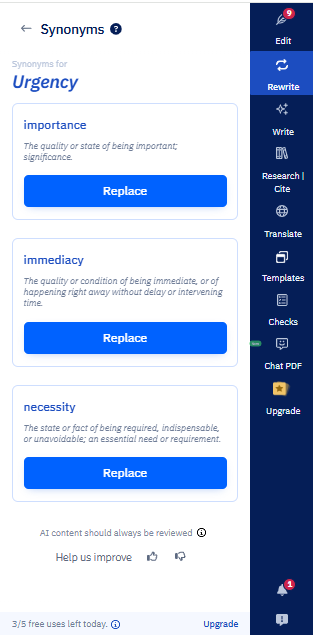Table of Contents
Have you ever wondered about the nuanced difference between the usage of dose vs. dosage in research? It’s a subtle distinction that can sometimes be overlooked, but it’s essential for accurate reporting and experimentation. Here’s a blog explaining exactly what is dosage, what is dose, when to use dose or dosage, and how are they different.
What is dose?
Dose refers to the amount of a substance administered to an individual, usually in terms of weight or concentration. It is a single quantity of a substance that is given to achieve a desired effect. For example, in pharmacology, the dose of a medication may be expressed in milligrams (mg) per kilogram (kg) of body weight.
Let’s look at some more examples of sentences that use dose:
- The recommended dose of the drug is 10 mg/kg.
- The mice were administered a single dose of the experimental compound.
- The study found that a higher dose of the vaccine was more effective in preventing infection
What is dosage?
Dosage refers to the regimen or schedule of administering a substance, usually over a period of time. It is the total amount of a substance given over a period, often expressed in terms of frequency and duration. For example, in clinical trials, a medication dosage may be administered once daily for a week.
Let’s look at some more examples of sentences that use dosage:
- The recommended dosage for the medication is one tablet every six hours for a week.
- The study compared the effects of different dosages of the supplement over a six-month period.
- The participants were instructed to take the medication at the same dosage for the duration of the study.
To avoid confusion, researchers should be careful to use the appropriate term when describing the administration of substances in their experiments. By understanding the difference between dose and dosage and using them correctly, researchers can ensure that their results are accurately reported and interpreted.
We hope the article gave you the right dose of knowledge, but if you are still unsure, you can achieve clear, concise, error-free writing with Paperpal, an AI writing assistant trusted by over 600,000 academics around the world.
How can Paperpal help you polish your academic writing?
Achieving the level of precision required for submission-ready academic work goes well beyond just correct spelling or word usage. Paperpal’s AI academic writing toolkit is your best bet, providing precise real-time language suggestions and grammar checks to help authors write high-quality English academic text.
Write better, faster with Paperpal’s comprehensive toolkit, including:
- Advanced Grammar Checks: Tailored to support academic writing, Paperpal provides 3x language corrections to help you fix spelling, punctuation, and complex grammar errors.
- Contextual Synonyms: Trained on millions of language corrections by top academic editors, Paperpal helps you use the right words in your academic writing. Just highlight a word and get synonyms based on context and usage in academia

Paperpal’s Contextual Synonyms
- Rewriting support: Use Paperpal’s paraphrasing to polish your sentence structures, add variety to your writing, make your text shorter, and ensure an academic tone without changing the original meaning.
- Consistency Checks: By identifying and helps you fix inconsistencies in your writing, including issues with style, numbers, equations, and more, Paperpal helps you deliver elegant, polished academic text.
- Writing Tips: While Paperpal suggests real-time suggestions to improve your writing, it also offers detailed explanations to help you understand and avoid these mistakes in future works.
Save hours of editing time and achieve academic writing excellence in minutes. Simply upload your document or paste your text into Paperpal, and let its language suggestions work their magic. Start writing today for free.
Paperpal is a comprehensive AI writing toolkit that helps students and researchers achieve 2x the writing in half the time. It leverages 21+ years of STM experience and insights from millions of research articles to provide in-depth academic writing, language editing, and submission readiness support to help you write better, faster.
Get accurate academic translations, rewriting support, grammar checks, vocabulary suggestions, and generative AI assistance that delivers human precision at machine speed. Try for free or upgrade to Paperpal Prime starting at US$25 a month to access premium features, including consistency, plagiarism, and 30+ submission readiness checks to help you succeed.
Experience the future of academic writing – Sign up to Paperpal and start writing for free!




